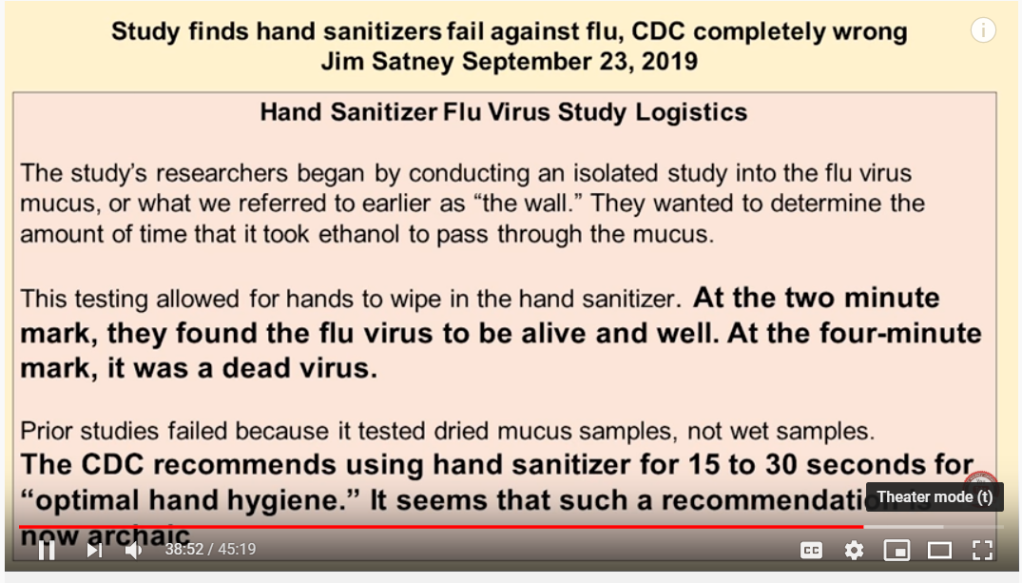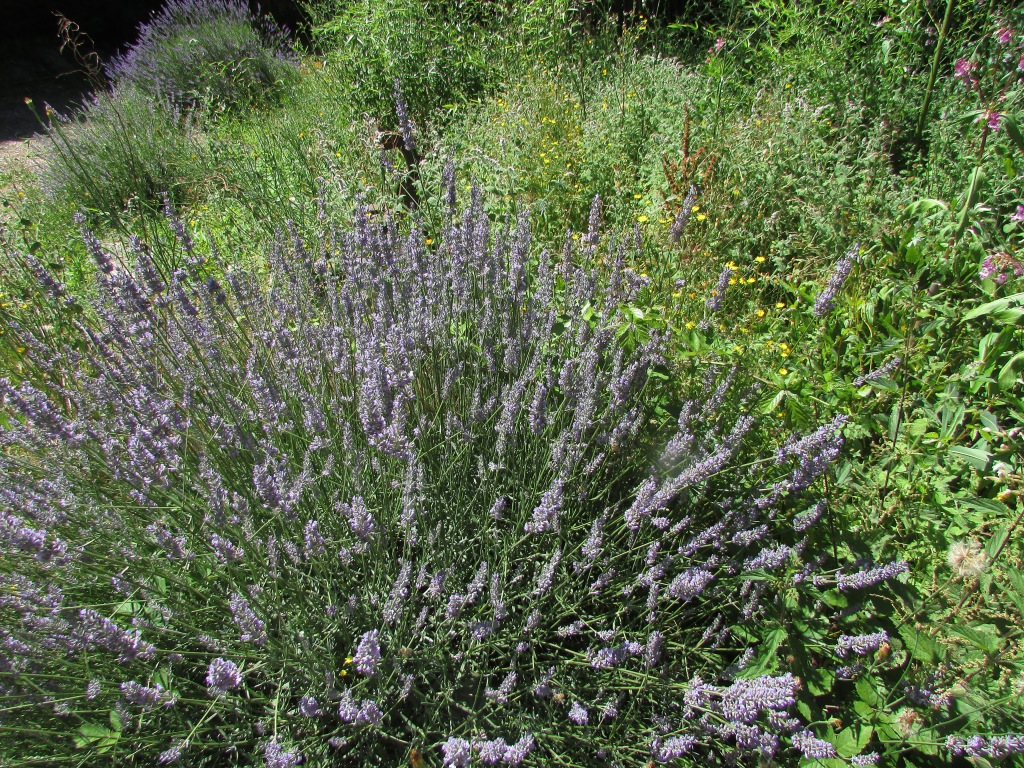As for soap: aside from the toxic ingredients it usually has, normal soap doesn’t even take off bacteria after 4 minutes of washing.
In a thorough study of soapcontamination, one team of U.S. researchers found that even among test subjects with great handwashing technique — more on that in a minute — soap that was already contaminated wound up increasing the number of bacteria on the subjects’ hands after washing.
The scientists tested three types of soap dispenser, in both lab and real-world settings.
Of the three variants, the dispensers that were refillable from a giant bottle of liquid soap were by far the filthiest, leading to a 26-fold increase in handwashers’ bacteria levels.
Modular dispensers that relied on sealed refills stayed clean even after a year of use.
In short, both the nature of the dispenser as well as the cleanliness of the soap itself can have a major impact on how clean your hands are after washing.
How helpful is antibacterial soap, anyway?
Here are the resilts of study mentioned in the article: https://www.ncbi.nlm.nih.gov/pmc/articles/PMC3126420/?tool=pmcentrez

Open in a separate windowFig. 1.
Recovery and transfer of bacteria from hands after washing with contaminated liquid soap in an elementary school.
An elementary school was identified in which all (14/14) of the bulk-soap-refillable dispensers being used in the restrooms were found to be contaminated with bacteria at levels ranging from 6.0 to 7.0 log10 CFU/ml of soap (Table 3). A variety of Gram-negative species from the Citrobacter, Providencia, Pseudomonas, and Serratia genera were identified among the recovered contaminants. All of the contaminated dispensers were replaced with sealed-soap-dispensing systems after the first phase of the field hand washing study. After 1 year postinstallation, all of the soap dispensed from the sealed-soap dispensers was confirmed to be contamination free.
https://www.ncbi.nlm.nih.gov/pmc/articles/PMC3126420/?tool=pmcentrez
Vinegar and essential oils on the other hand kill pathogenic viruses, bacteria and fungi instantly, without harming the skin flora and the natural oils on our skin, another brilliant way our immune system protects us. So a soap dispenser with vinegar by the sink which you can use as soap, rinse, and then rub some essential oil on and rinse again.
The battle between beneficial microbes and pathogens isn’t only going on in our guts. It’s also going on on our skin and in our surroundings. So when we are cleaning ourselves, we want smart disinfectants, that, like our immune system, kill pathogens without harming beneficial microbes.
Anti bacterial soap, achieves the opposite of what it claims. Instead of ridding the body from bacteria, it aids in creating a super resistant bacteria. The reason is that aside from destroying the natural oils on the skin and the skin flora the soap just kills weak pathogens and aids in creating super strong strains.

CR says: “As with previous studies, the new research found that using hand sanitizer can remove the flu virus, but it took far longer than hand-washing did. One of the main reasons, the researchers found, is that the mucus from the mouth and nose—which contains the flu virus if you’re infected—makes it difficult for the alcohol in hand sanitizers to penetrate.”
Vinegar , on the other hand, is very disinfecting, even better than alcohol and it softens your hands instead of drying them out. like soap does, and it kills pathogens without harming the beneficial microbes, or the natural oils on the skin
The following article is from ABC Health & Wellbeing
By Anna Evangeli and Amy Thanh Ai TongUpdated 18 January 2018 at 8:14 amFirst posted 11 January 2018 at 8:10 pm
Does vinegar really kill household germs?
“It’s certainly inexpensive, non-toxic and biodegradable and has been used as a common disinfectant for thousands of years.
But especially if you want to clean your kitchen or your bathroom, you might be wondering about household germs. Does vinegar really kill them?
It seems the answer is a qualified “yes”.
How does it work?
Vinegar, be it white or malt or rosemary-infused, is about 5 per cent acetic acid. The acid kills bacteria and viruses, by chemically changing the proteins and fats that make up these nasties and destroying their cell structures.
Household products you could cut to help the environment
Some products take a long time to break down, and have unforeseen toxicities.
When US researchers tested commercial cleaning products against alternatives like vinegar and bicarbonate of soda, they discovered that neat vinegar killed a range of household pathogens.
Science also tells us, for example, that vinegar will kill off the flu virus.
As part of research aimed at preparing us for a flu pandemic, UK researchers found that malt vinegar, much like bleach and washing up liquid, can rapidly inactivate the flu virus.
More recently, US researchers from the Albert Einstein College of Medicine found that vinegar efficiently killed Mycobacterium tuberculosis — the bacteria that causes tuberculosis — after 30 mins of exposure to a six per cent acetic solution.
Professor Peter Collignon, an infectious diseases physician at the Australian National University’s medical school, says: “TB is a hard-to-kill bacteria, so the fact that it works against them means most other bacteria will likely be killed by vinegar as well.”
https://www.abc.net.au/news/health/2018-01-12/does-vinegar-really-kill-household-germs/8806878
From David Suzuki Foundation:
Does vinegar kill germs?
Yes. Acetic acid (a.k.a. white vinegar) is a great disinfectant. It also acts as a deodorizer and cuts grease.
You can tackle salmonella, E. coli and other “gram-negative” bacteria with vinegar. Gram-negative bacteria can cause pneumonia, meningitis and bloodstream, wound or surgical site infections.
How does it work?
The acid in vinegar crosses the bacteria’s cell membrane, prompting a release of protons, which causes the cell to die.
White vinegar found on most store shelves is a five per cent concentration of acetic acid. It kills about 80 per cent of germs. Look for stronger concentrations at eco-friendly stores that have refill stations.
Use full strength for tough cleaning jobs or dilute 50:50 with water.
Five ways to clean with vinegar
- Fill your dishwasher rinse agent dispenser with white vinegar.
- Soak sweat-stained white clothing in about 60 millilitres of white vinegar and enough water to cover the stain. Leave overnight. Wash with eco-friendly laundry soap.
- Soak rusty tools in a pail of white vinegar and brush to clean.
- To deodorize your toilet, pour 125 millilitres of white vinegar into the bowl. Let sit 15 minutes. Flush. ( We use boiled vinegar, leave it in for w hours, and then flush with soda to make it pH neutral)
- To remove hard water deposits on your tub/glass shower doors, heat 250 millilitres of white vinegar in a pot. Spray onto surface. Let sit 15 minutes and wipe clean.
https://davidsuzuki.org/queen-of-green/does-vinegar-kill-germs/
We have soap dispensers filled with vinegar at all sinks. Ordinary white vinegar, which you can also put on your salad.
We also have small bottles of lavender essential oil at all sinks. To still have a nice scent, you can rub a drop of it in your hands after washing your hands with vinegar. Not just for the wonderful fragrance, , but also because of the anti viral, anti microbial and anti-fungal properties of many essential oils
These are the strongest anti viral essential oils:
Now anti viral does not mean you can use it straight on your skin, like lavender. Some of these are irritating for the skin. Research before you use them.
Cajeput
Cassia
Cinnamon Bark
Cinnamon Leaf
Cistus
Clove Bud
Elemi
Eucalyptus globulous
Eucalyptus radiata
Helichrysum italicuum
Hyssop decumbens
Laurel
Lavender
Lemon
Lime, Steam-Distilled
Manuka
Myrrh
Niaouli
Oregano
Palma Rosa
Patchouli
Pepper, Black
Peppermint
Ravensara (said by some to be effective against mononucleosis, herpes, shingles, flu, etc.)
Sage, Dalmation
Sandalwood
Tea Tree
Thuja (Cedarleaf)
Thymes (I recommend Linalool)
True Melissa (against the herpes virus)
https://www.naturesgift.com/aromatherapy-information/how-to-use-essential-oils/anti-viral/
Surprising that chamomile is not in this list.
The following is from
Phytother Res. 2010 May;24(5):673-9. doi: 10.1002/ptr.2955.
Comparative study on the antiviral activity of selected monoterpenes derived from essential oils.
“Essential oils are complex natural mixtures, their main constituents, e.g. terpenes and phenylpropanoids, being responsible for their biological properties. Essential oils from eucalyptus, tea tree and thyme and their major monoterpene compounds alpha-terpinene, gamma-terpinene, alpha-pinene, p-cymene, terpinen-4-ol, alpha-terpineol, thymol, citral and 1,8-cineole were examined for their antiviral activity against herpes simplex virus type 1 (HSV-1) in vitro. These essential oils were able to reduce viral infectivity by >96%, the monoterpenes inhibited HSV by about >80%. The mode of antiviral action has been determined, only moderate antiviral effects were revealed by essential oils and monoterpenes when these drugs were added to host cells prior to infection or after entry of HSV into cells. However, both essential oils and monoterpenes exhibited high anti-HSV-1 activity by direct inactivation of free virus particles. All tested drugs interacted in a dose-dependent manner with herpesvirus particles thereby inactivating viral infection. Among the analysed compounds, monoterpene hydrocarbons were slightly superior to monoterpene alcohols in their antiviral activity, alpha-pinene and alpha-terpineol revealed the highest selectivity index. However, mixtures of different monoterpenes present in natural tea tree essential oil revealed a ten-fold higher selectivity index and a lower toxicity than its isolated single monoterpenes.”
https://www.ncbi.nlm.nih.gov/pubmed/19653195



For clean nails, dissolve some soda in water and use that with a nail brush, for example each day in the shower, but you can also keep it by the sink.
For more tips on how to keep the corona virus at bay naturally, see
Presuns for beating Corona virus Covid 19 2019-nCoV naturally


10 thoughts on “Want clean hands? Vinegar and essential oils are the best disinfectants!”